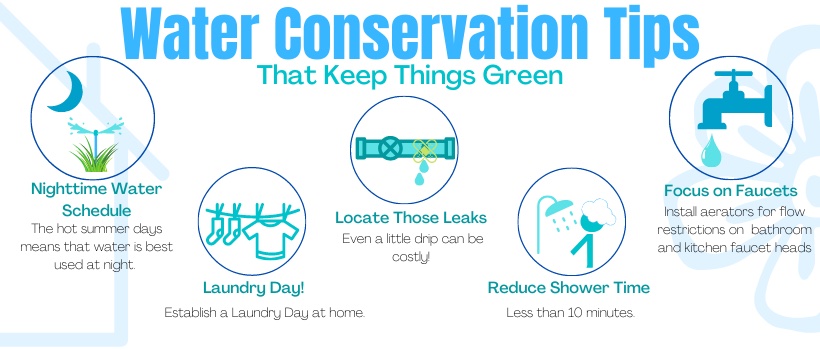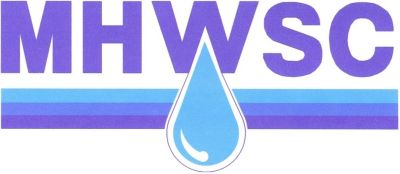Water Conservation
Growing populations, environmental concerns, climate changes, droughts, water shortages. The need for wise stewardship of finite freshwater resources has never been greater. Water conservation is one tool that can be used effectively to meet these challenges.
Water conservation is an effective and efficient means of solving many water supply problems: it can ease a utility through a short term shortage; it can eliminate the need for new source development; it can improve a water system; it can prevent water rationing during a drought.
There are two ways in which conservation can be achieved. Through Supply Management, the utility conserves within the supply system. Through Demand Management, the user conserves within his home or business.
Since the supply system is under the direct control of the utility, saving water within the system is relatively straightforward. If you have enough funds and/or labor, you can make the system improvements that will save water without involving users.
If the utility needs to rely on its customers to save water, conservation becomes somewhat more complex. Users need a good reason ... an incentive to reduce their water use. Demand Management programs are designed to provide the users with such an incentive.
Military Highway WSC has developed a Water Conservation Plan and a Drought Management Plan which address the need to conserve. (See 2 documents in the Relevant Documents)
Texans can be Water-Wise by making Simple Changes. The “CLEAN TEXAS 2000” program reveals these top 9 ways for conserving at home:
- Restrict lawn watering to only once every five days before 10AM or after 8PM.
- Install low-flow showerheads. They use 30-70 percent less and are still adequate.
- Placing a ½ gallon plastic jug of water in tank safely conserves toilet water.
- Kitchen and bathroom faucets fitted with a low-flow aerator will get the job done with half the water.
- Showers limited to 5 minutes or less works just as well. Fill the tub only half full when bathing, and don’t let the water run while brushing your teeth or shaving.
- Use a cut-off nozzle while washing the car instead of the water running continuously.
- The kitchen accounts for about 8% of water use. Rinse dishes in a basin and soak them before scrubbing. Minimize garbage disposal use and run dishwasher only when full.
- Repair all leaks ASAP. Check toilet leaks by adding a few drops of coloring in tank.
- Avoid running water until it is hot. Insulate water heater and hot water pipes.

Water Conservation Tips

